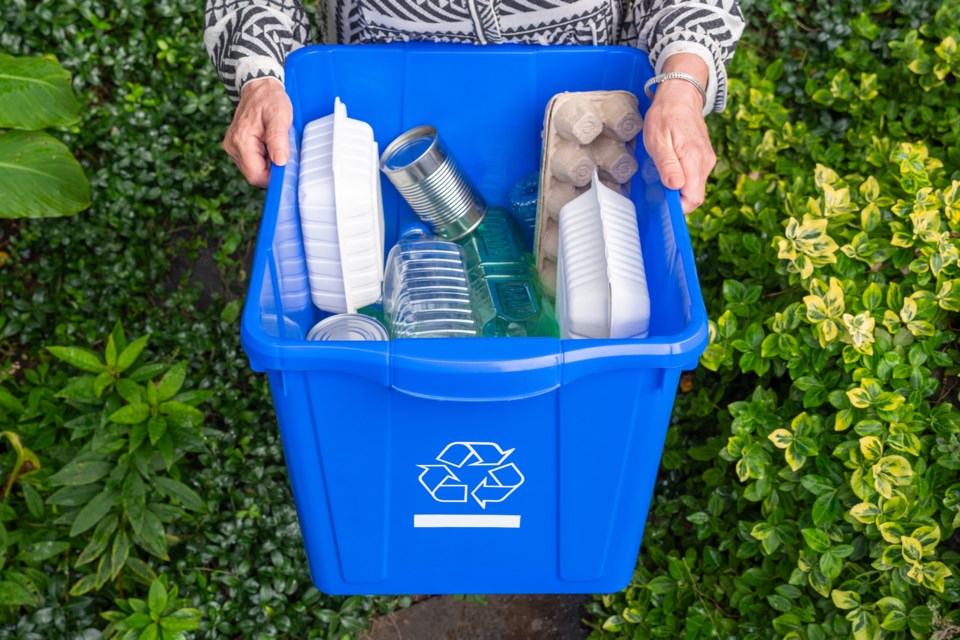Imagine you’re standing at a bottle depot with an empty pop can. You can get a dime back, or you can take a chance at winning $1,000. Which would you choose?
Every year, the world produces two trillion beverage containers but only 34 per cent of glass bottles, 40 per cent of plastic bottles and 70 per cent of aluminium cans are recycled.
To increase recycling rates, many countries have adopted deposit refund systems, where you pay a small deposit, say 10 cents, when you buy an eligible beverage container and get this deposit back when you return it to a local depot.
Through this system, approximately 80 per cent of containers in British Columbia and almost 85 per cent of containers in Alberta are recovered. Still, that leaves millions of containers as litter, in landfills or incinerated every year, contributing to pollution and greenhouse gas emissions.
With Canada’s goal of zero plastic waste by 2030 drawing near, a new approach to recycling beverage containers could make a difference.
We recently conducted a research experiment to find out if more people would recycle more often if they had a chance to win a prize.
A lottery-style refund to boost recycling
Psychology research shows that people tend to prefer a small chance to win a large reward over a guaranteed small reward. For example, people would more often prefer a small chance to win $5,000 over receiving a $5 reward.
Applying this insight to recycling, we turned the small guaranteed refund of $0.10 in B.C. and Alberta into a 0.01 per cent chance of getting $1,000. We set up recycling tables at food courts in Vancouver and at a RibFest event in Spruce Grove, Alta.
When people brought their beverage containers to us to recycle, we presented them with five options for a refund. They could get their guaranteed 10 cents, or a chance to win a larger amount of money, the highest option being $1,000.
We found that people preferred the chance to win $1,000 over the other options, and they felt the happiest after making this choice.
To see if the lottery option actually increased recycling, we conducted an experiment where we told people ahead of time that they would get their guaranteed 10-cent refund or that they had a chance to win $1,000 for each bottle they brought to our study.
We found that people brought 47 per cent more beverage containers when we offered them a chance to win $1,000 than when we offered them the guaranteed refund.
Overall, our findings suggest that offering a chance to win a larger amount of money can meaningfully boost beverage container recycling. The excitement of a potential big win can motivate people who may not be enticed by the typical small, guaranteed refund.
Choice matters
A one-size-fits-all approach won’t work. People recycle for different reasons. They also have different risk tolerances, and some may rely on the guaranteed refund for additional income. To capture diverse preferences and needs, it’s vital that the lottery-style refund is offered in addition to the guaranteed refund, not instead of it.
It would also be beneficial to include smaller, more frequent prizes alongside the grand prize, so people win relatively frequently to keep motivations high.
This is Norway’s approach to their recycling lottery, with 39 per cent of people choosing the lottery option when they recycle. In 2023, Norway’s recycling lottery achieved a 92.3 per cent container return rate.
Importantly, our research does not capture people who collect large bags of containers to return to the depot. It’s possible that this demographic may have different preferences for the refund, and future research should examine this group in particular.
Green lottery for good
The lottery-style refund has the same expected payout as the 10-cent refund per bottle. This means that, on average, people will take home the same amount of money as with the guaranteed option, without incurring additional losses or gains. This benevolent factor distinguishes the lottery-style refund from other types of lotteries or gambling that often profit off the players.
Since the only way to enter this lottery-style refund is to recycle beverage containers, it’s impossible to directly re-enter any winnings into the lottery. There are also no near-misses, losses disguised as wins, exciting lights and sounds or other sensory stimulation often associated with gambling.
Some might be apprehensive about potential gambling dangers of creating a lottery system. However, there has not been a single case linking the recycling lottery to gambling addiction. There is also no evidence that purchases of beverage containers would increase as a result of the lottery-style refund.
Our study’s transparent design, with clear odds, ensures fairness, unlike casino games built to take players’ cash. For this approach to be successful, deposit refund systems must maintain this transparency in lottery-style program operations and payouts.
If done right, offering a chance to win a higher amount of money for recycling can meaningfully increase recycling rates, contribute to a circular economy and allow people to choose the refund option that works best for them.
Jiaying Zhao receives funding from the Social Sciences and Humanities Research Council of Canada.
Jade Radke receives funding from the Social Sciences and Humanities Research Council of Canada Doctoral Fellowship and the University of British Columbia Indigenous Graduate Fellowship.


